International SL Testimonials
| 他の年度の体験談を見る 2018 | 2019 | 2020(中止) | 2021 | 2022 | 2023 | 2024 | 2025 |
Philippines Silliman University

HOSOYA, Reia
Through the program, I had the opportunity to stay at two different facilities, which allowed me to interact with the people living there and engage in service-learning activities. During the first week, I stayed in the university dormitory, where I learned about life in the Philippines, its history, and the concept of service-learning activities.
One of the most memorable aspects of the activities was seeing how both the children and adults—despite living in conditions that could not be considered affluent—were kind, generous, and full of smiles. I was especially impressed by how the children enjoyed the activities we had planned and how eagerly they approached and spoke with us. At the facility where children from various backgrounds live, I was reminded that, regardless of their pasts, they all seek connection and love from others.
Living alongside students from Silliman University for about a month, I experienced cultural and ideological differences; however, working together toward the shared goal of serving others became an invaluable experience.
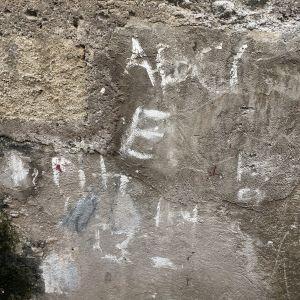
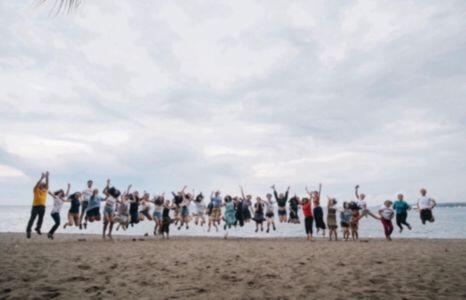
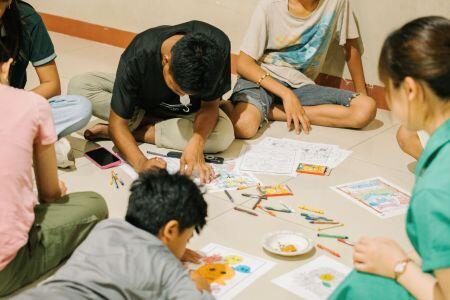
|
India Lady Doak College
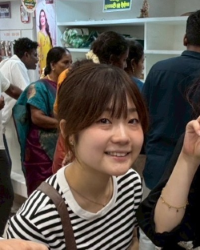
IMANISHI, Hana
Through the service-learning activities, I had the opportunity to engage in discussions with local university students about the caste system and gender issues, and to visit five different schools. These experiences allowed me to witness the realities of India and reflect deeply on myself. In particular, when I noticed the differences in school facilities, students’ English proficiency, and the freedom of thought between an international school and a rural elementary school, I was prompted to think about the impact that educational institutions have on children. At the same time, it was a valuable experience that allowed me to reflect on the kind of educational environment I grew up in and how it shaped my way of thinking.
One of the most memorable moments was reading the reflections written by the students after I taught a lesson at the first school we visited. As someone who had never taught a class before, teaching children in India—within a different culture and using English as a second language—was truly stepping into the unknown. Yet, through trial and error and collaboration with my team, we created a lesson that successfully conveyed the message we wanted to share. Seeing that message reflected in the students’ writing brought me genuine joy. This experience became a major source of motivation for the rest of the service-learning activities and helped me realize the importance and joy of education.
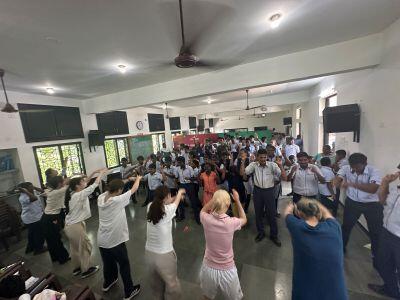
|
Indonesia Petra Christian University
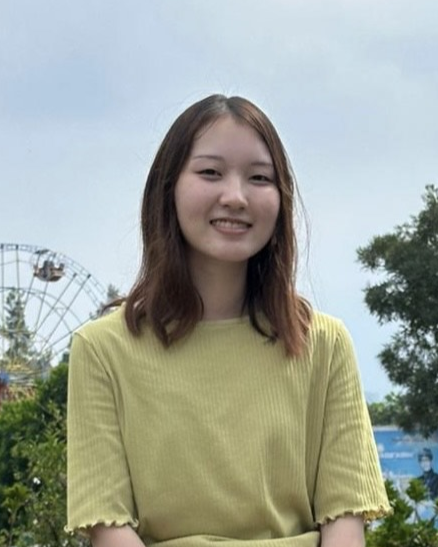
AOYAMA, Yui
The greatest part of the program was the opportunity to stay with a host family in the village. By experiencing the living environment firsthand and spending extended time in the village, I felt my motivation and sense of responsibility toward the service-learning activities grow significantly. In addition to the learning gained through activities, I believe this program also taught me the importance of connection with others. Before the program began, I was mindful of the connection with the village we were scheduled to visit. But once it began, as we helped each other in our daily lives and were supported emotionally, I came to appreciate the importance of the bonds with other students and the gratitude I felt toward those around me.
One project that made a strong impression on me was creating crafts using plastic waste collected at a local elementary school. We introduced traditional stories and games from our respective countries and interacted directly with the children, creating not just physical service but also lasting memories. Even though we could only communicate using simple words, I was delighted when the children began to call our names. Through various activities, I was able to deepen my connections with students from other countries, and it was a time when we could truly face each other as human beings beyond age and nationality.
Not only through the service-learning activities, but also through the everyday moments spent with peers and local residents, I gained many valuable insights that cannot be acquired through classroom study. It was a deeply enriching experience that helped me grow as a person.
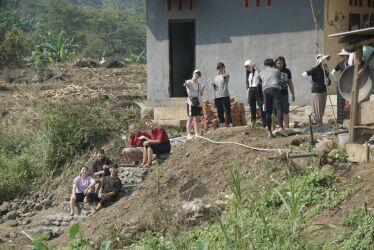
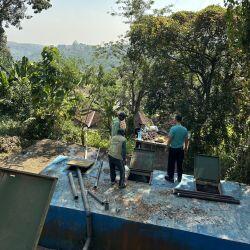
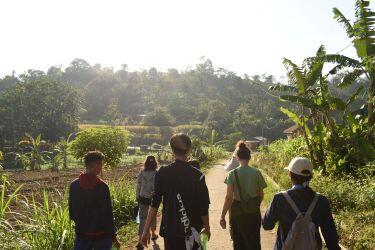
|
South Africa University of Cape Town
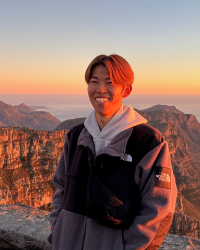
AKAO, Takuto
During the service-learning program in South Africa, I spent fulfilling days participating in various activities while living in a well-equipped dormitory. Additionally, since we had free days on weekends, I was able to visit many different places in South Africa.
What left the strongest impression on me was the activity at local schools. In our pre-departure learning, I had studied that South Africa faces serious issues related to wealth disparity, but seeing the reality firsthand was truly shocking. Specifically, we visited two very different types of schools: a primary school located in a township with safety concerns, and a high school attended by children from relatively affluent families. The contrast in what the children had access to made the wealth gap very apparent. Additionally, the racial composition of the two schools was significantly different, prompting me to reflect further on the correlation between economic disparity and race.
By participating in the service-learning program and visiting the country in person, I became more aware of my own interests and gained many valuable insights through engaging with people whose lives are vastly different from my own.
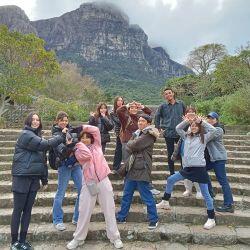
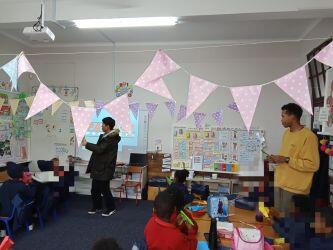
|

